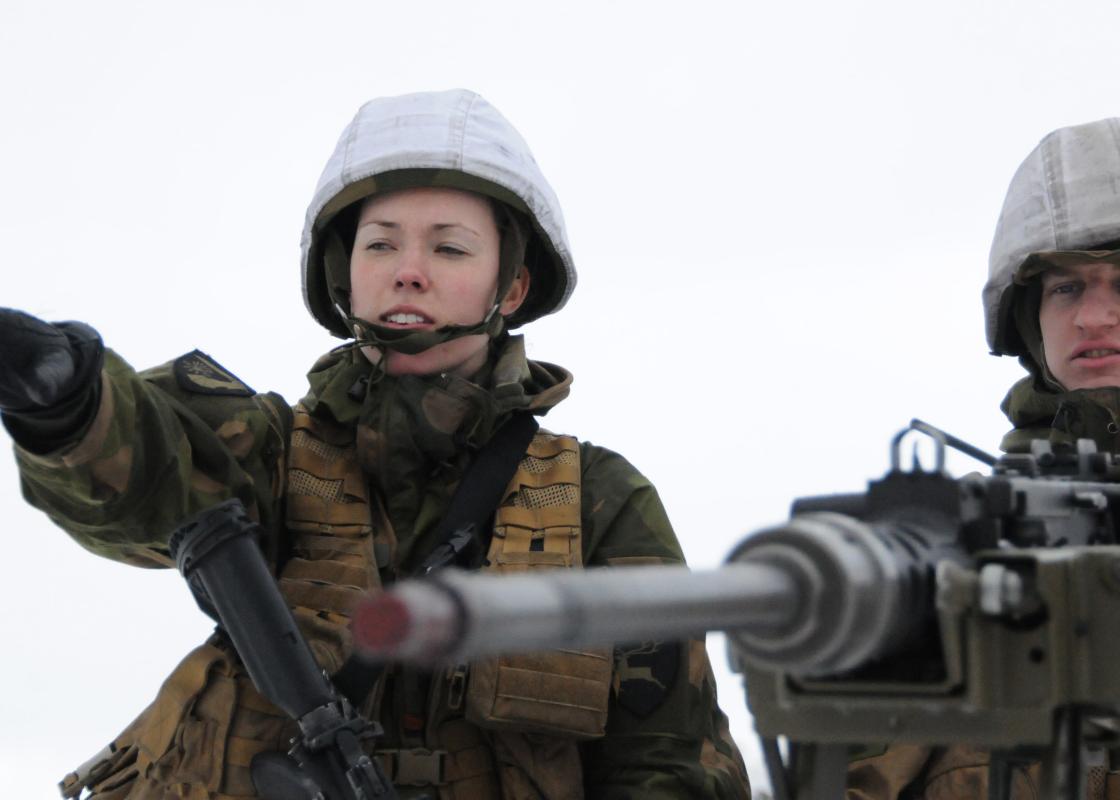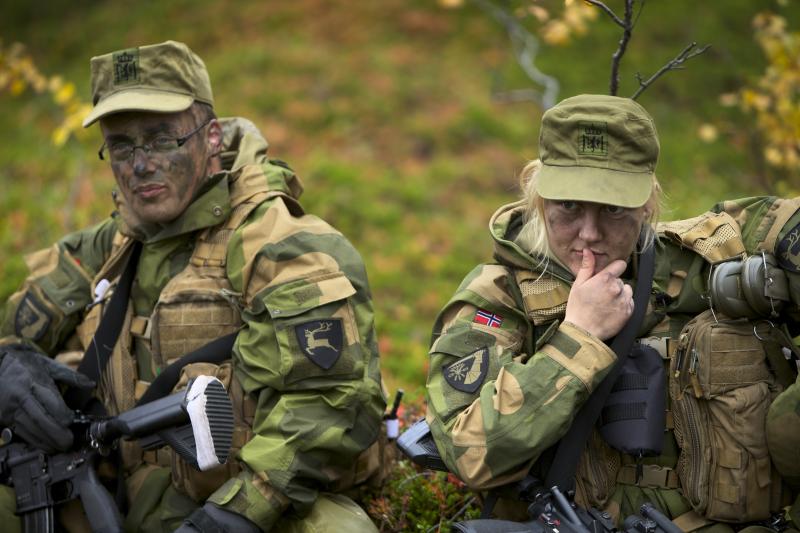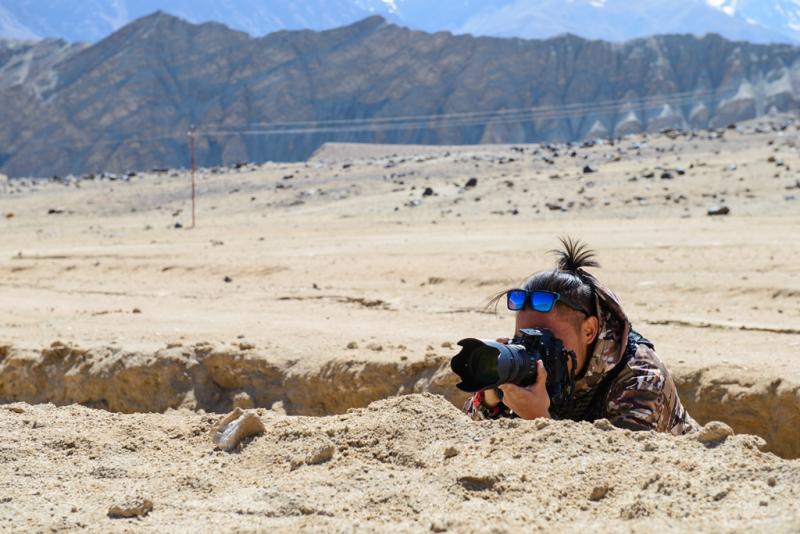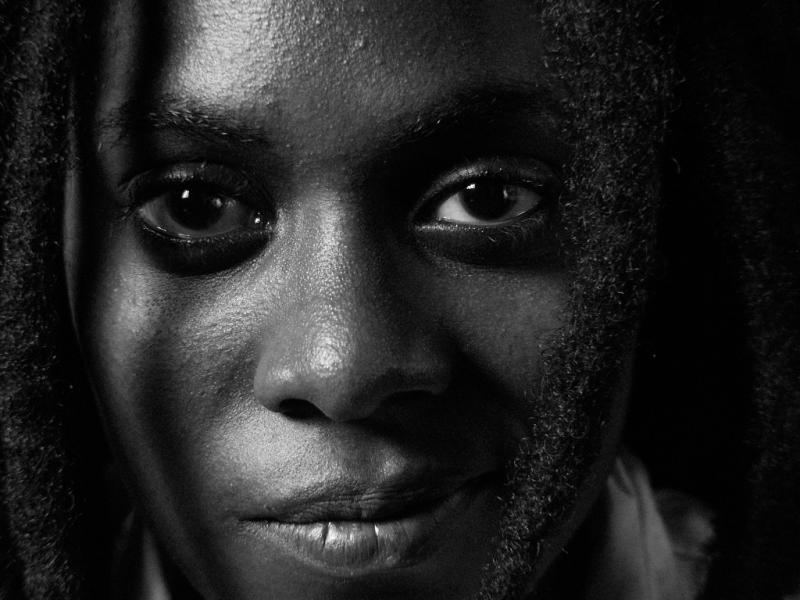When a military troop gets a female soldier for the first time, she is called into her superior’s office: “I will not be treating you any differently from the other soldiers,” the officer says. “You already did,” says the female soldier.
This is an urban myth from the American Armed Forces. But it addresses some problems that the Norwegian military has to consider as part of the introduction of female conscription and its ambition to increase the number of women in the military.
Is treating women and men differently the same as discrimination, or is it a necessity in order to achieve actual equality?
Equality on the agenda
During the past years, a number of research projects have examined the Norwegian Armed Forces in a gender perspective. For instance, research has addressed the strong masculine culture in the military, where women are regarded as something alien that doesn’t fit in. The male dominance provides a breeding ground for sexual harassment, partly due to the fact that men occupy most of the positions of power and because sexual harassment rarely has any consequences.
The Armed Forces and the Ministry of Defence have funded much of the research, which indicates that equality and the recruitment of more female soldiers are prioritised areas on top of the defence political agenda.
So-called unisex rooms, where male and female soldiers share rooms during national service, have been among the attempted measures for implementing equality. Thus far, experience shows that unisex rooms create a stronger team mentality and increased tolerance of female soldiers.
Less grabbing
“When women and men share the same room they regard each other more as human beings and less in terms of gender. The separation of women and men creates myths and a distance, whereas frequent exposure increases the tolerance and understanding of each other,” says Nina Hellum, researcher at the Norwegian Defence Research Establishment (FFI). She is the researcher behind a new report on unisex rooms in the Norwegian Armed Forces.
“The reported conflicts that have taken place in the unisex rooms have had more to do with clashes of different personalities rather than with gender.”
According to the researcher, unisex rooms also seem to reduce any sexual tension between the recruits. One of the female recruits said she felt that the roommates all became one big family:
“You think of them as your brothers. Sometimes you’re sick of the people in your troop while at other times they’re really cool. So in my experience at least… they’re my brothers, and I could never touch my brothers in any way.”
Lived with the soldiers
A previous Norwegian study of unisex rooms reached similar conclusions. Hellum has studied two military camps, one combat battalion and one support battalion, both in which women made up a small minority.
At one of the camps, the Skjold camp in Målselv municipality where the second battalion (light infantry) and the engineer battalion are based, there were two women out of a total of thirty to forty soldiers. At Heggelia camp in Bardufoss, which houses the communication battalion, there were seventy soldiers out of which two were women.

Hellum stayed in a six-bed dormitory with the soldiers; she slept and ate with them and participated in the military manoeuvres for one week at each camp. She also conducted interviews with the recruits and their superiors.
Both recruits and officers in the two camps regarded unisex rooms as a positive thing.
Pure boy’s rooms were regarded as OK, whereas pure girl’s rooms were regarded as something negative, since they were considered a source of drama and intrigue.
See also: Unisex rooms made gender insignificant in the army
Are women capable of rescuing a fellow soldier?
While sharing room with a female soldier during national service was considered OK, there was a prevailing scepticism towards female soldiers more generally.
The title of the report, ‘Make-up shit all over the sink’, is, for example, a quote from a male recruit who thought that women make too much drama and don’t follow the military routines properly. If there’s going to be make-up in the sink it should at least be camouflage make-up.
According to Hellum, one argument keeps reappearing in the debate concerning female soldiers: If a soldier is wounded on the battlefield, a woman isn’t strong enough to carry him into safety. Therefore, women should not be part of the military.
“Physically strong men are clearly better suited for some types of military service. But both today and in future the Armed Forces will need other types of competence than just physical strength.”
“And how often do Norwegian soldiers find themselves in a situation like that? Apart from a few special forces and a few other battalions, this is not a relevant objection,” says Hellum.
The researcher has been met with the argument several times, but none of her opponents have been able to come up with examples of actual episodes where this has been a problem.
“There are many women in the medical battalion, which is responsible for taking care of wounded soldiers. Paradoxically, they are the ones who carry the wounded soldiers from the battlefield,” she says.
Differential treatment may be right
Among the military officers, Hellum has often come across the attitude that equal rights and duties require equal treatment, as was the case in the urban myth above where the officer made it clear to the female soldier that he wouldn’t treat her any differently simply because she was a woman.
“But the fact is that women and men are not exactly the same. And since they don’t have the same preconditions in the first place, for instance in terms of physical strength, equal treatment is not necessarily the same as giving them equal opportunities.”
“I would claim that in some cases unequal treatment may contribute to more equality rather than applying the same yardstick to everybody,” says Hellum.
Must endure a bit more
Hellum emphasises that the women who are in the military today are there by choice, and they are usually very motivated for military service.
“They were prepared for the male dominant culture in the military and expected to find posters of big-breasted women on the walls and to hear crude language. The women stated that they had to have a high tolerance for comments and remarks simply because they’re women. They don’t want to be perceived as a ‘nagging woman’.”
One of the female soldiers commented:
“I think that if I were a male soldier working with a woman who constantly had to express how she felt different because she was a woman, I would have found that annoying. […] Therefore, I just leave it. I don’t want to be the woman who demands equality wherever she goes.”
“The female soldiers feel that it is up to them to be happy in the military, and in order to be happy they have to adjust to the masculine culture. None of them demanded that the Norwegian Armed Forces as an organisation have to change to better facilitate them,” claims Hellum.
Pink uniforms
The researcher thinks this will change with the introduction of female conscription. The first set of female conscripts start their service in the summer 2016.
“Then some of the female soldiers might be less motivated. They mightn’t have the same demands and expectations as female soldiers today.”
According to Hellum, the Norwegian Armed Forces should develop a plan in order to better integrate women and meet new challenges.
“I’m not talking about pink uniforms and make-up parties, but rather to introduce equipment adjusted to female soldiers and to address practices, traditions and jargon that no longer have any function apart from excluding women.”
As Hellum herself puts it in an article in the national newspaper Dagsavisen: The question is not about whether women are ready for the military, it’s about whether the military is ready for women.
Translated by Cathinka Dahl Hambro
- Nina Hellum is a social anthropologist and researcher at the Norwegian Defence Research Establishment (FFI).
- She is responsible for the recent report “’Make-up shit all over the sink’ – a qualitative field study of unisex rooms and masculine culture in the Norwegian Armed Forces” (’Sminkedritt over hele vasken’ – en kvalitativ feltstudie av kjønnsblandede rom og maskulinitetskultur i Forsvaret).
- The report shows that the Norwegian Armed Forces are characterised by a masculine culture where women don’t fit in.
- The introduction of unisex rooms seems to have moderated the gender differences among the soldier recruits and reduced the prejudices against female soldiers.



